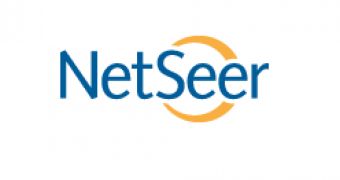On Monday, the website of advertising network NetSeer was hacked and infected with malware. The hackers only breached the third-party hosted corporate website netseer.com, but that was enough for Google to catalog the site as being malicious.
Despite the fact that they share the same domain, the company’s ad serving infrastructure is different from the corporate website.
In a statement, John Mracek, the CEO of NetSeer, explained that the malware planted by the cybercriminals never actually impacted the ad system.
Google’s Chrome web browser warned users about malware infections only because the ad system shared the same domain name with the corporate website.
NetSeer rushed to remove the malware from its systems and contacted Google to remove them from the list of malware-infected sites. It’s uncertain who is behind the attack, but the organization has launched an investigation.
“We deeply regret this situation and want to re-emphasize once again that it was our 3rd party hosted corporate website that got compromised and no malware got distributed to or affected our partners,” Mracek said.
“We are doing a root-cause-analysis on the security infrastructure of our corporate website hosting vendor and will take appropriate actions, including changing vendors, to ensure that this type of incidents do not affect us or our partners in the future.”
Among the sites blocked by browsers there were the ones of The Huffington Post, The Street, Los Angeles Times, The Washington Post, ZDNet, Boston.com and The New York Times.
On Monday, The Guardian published the following alert on Twitter: “Hello, Chrome users. We're aware some of you are seeing malware warnings about Guardian articles. Please ignore; no risk.”

 14 DAY TRIAL //
14 DAY TRIAL //